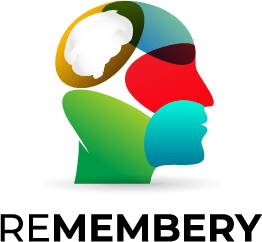In our fast-paced, tech-driven world, the line between natural mental function and digital assistance continues to blur. With the rise of memory app tools and reminder applications, it’s easy to wonder: Are we outsourcing our brains? Can digital systems truly support or even replace our memory functions? This article explores both sides, where digital memory tools shine, and where human memory still holds unmatched depth and value.
The Role of Digital Memory in Daily Life
Many people experience occasional forgetfulness, whether it’s missing a meeting, forgetting an item at the store, or skipping medication. To solve this, digital tools have emerged that serve as our external memory banks. A reminder application today is capable of handling everything from setting daily reminders to organizing schedules, special events, and notes. Some apps even allow for personal customization, offering repeated event alerts, timed notifications, and structured task management. A memory app can be especially helpful in busy households, work environments, or for people managing multiple responsibilities. These tools create a safety net for tasks that might slip through the cracks, supporting productivity and reducing stress.
Cognitive Training and Digital Brain Tools
Another side of the conversation involves brain training through structured mental exercises. These include problem-solving, memory challenges, logic tasks, and mental agility drills designed to improve overall cognitive function. The goal of cognitive training is to build stronger mental processes, often focusing on areas like attention, working memory, and pattern recognition. This has led to the development of various brain training programs, and structured routines that claim to improve mental clarity, focus, and long-term memory. Supporters argue that consistent use can maintain or even enhance mental sharpness, especially when combined with other healthy habits such as proper sleep, nutrition, and physical activity.
However, an ongoing debate remains: does brain training work beyond the screen? Some research indicates modest improvements in specific tasks, but other studies point out that those gains may not transfer effectively to real-world challenges. This brings into question how meaningful digital-only training is without real-world interaction or reinforcement.
The Depth and Complexity of Human Memory
Despite all the help technology offers, human memory remains a deeply complex and emotionally rich system. It’s not just about recalling facts or dates, it’s about emotional context, sensory experiences, and personal meaning. While a reminder application can nudge you to call a loved one, it doesn’t remember the tone of their voice, the warmth of their hug, or the stories you shared. Natural memory adapts, changes, and sometimes even strengthens in response to challenges. This flexibility is seen in people who, despite setbacks such as injury or aging, regain cognitive function through therapy and time. This kind of growth, fueled by neuroplasticity, simply cannot be replicated by software alone. Human memory also involves moral decisions, creative thinking, and emotional intelligence, areas that no digital system can replicate. So while a memory app might remember the “when” and “what,” it cannot grasp the “why” behind what truly matters to us.
Support for Seniors and Cognitive Health
Digital support becomes especially important when discussing memory loss in seniors. As people age, even those without clinical conditions may notice a decline in short-term memory, attention span, or processing speed. For individuals in or near a dementia friendly environment, digital tools can offer a sense of control and routine. Structured daily reminders, clear event alerts, and easy-to-use interfaces can support older adults who may struggle with remembering medication times, appointments, or family visits. A memory app designed with accessibility in mind allows them to maintain independence longer while easing the burden on caregivers. However, digital tools should supplement, not replace, interpersonal relationships and real-world engagement. Interaction, conversation, and meaningful activities are essential for brain health, especially for those experiencing memory loss. Technology is most helpful when paired with empathy, care, and companionship.
Digital Tools as Assistants, Not Replacements
Instead of asking if digital tools can replace the mind, a better question might be: how can they support it? Using an app for brain health as a companion tool can enhance organization, reduce stress, and promote routine. Features like event alerts, notes, checklists, and audio recordings can assist in building an environment where all things remembered are readily accessible. In families where someone experiences early memory decline or conditions like dementia, a well-structured remember application can offer peace of mind. However, the emotional, relational, and creative capacities of human memory remain irreplaceable. In this way, the Remembery app and similar tools function best when used in combination with cognitive stimulation, social interaction, and a healthy lifestyle. They are helpful, but they’re not a substitute for living memory.
Conclusion: Memory in the Digital Age
The comparison between digital memory and human memory isn’t a competition, it’s a collaboration. While brain training programs, memory apps, and reminder applications offer practical support and improved task management, they operate on the surface level of cognition. Meanwhile, human memory provides depth, meaning, and emotional connection. Our brains are not outdated technology but remarkable systems that can grow, adapt, and heal. With the right balance, we can use the Remembry App as a tool to support our natural capabilities, strengthening both our short-term productivity and long-term cognitive health. Whether you rely on a remember application for your daily reminders, or you’re exploring cognitive training to enhance focus, the best path forward is one where technology empowers, without replacing, the human mind.



